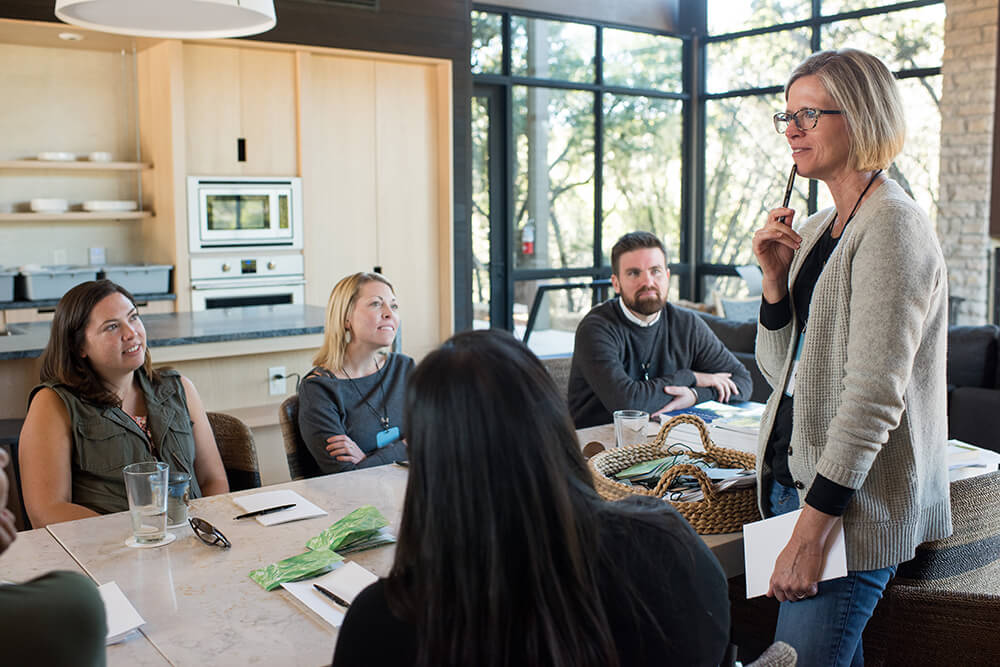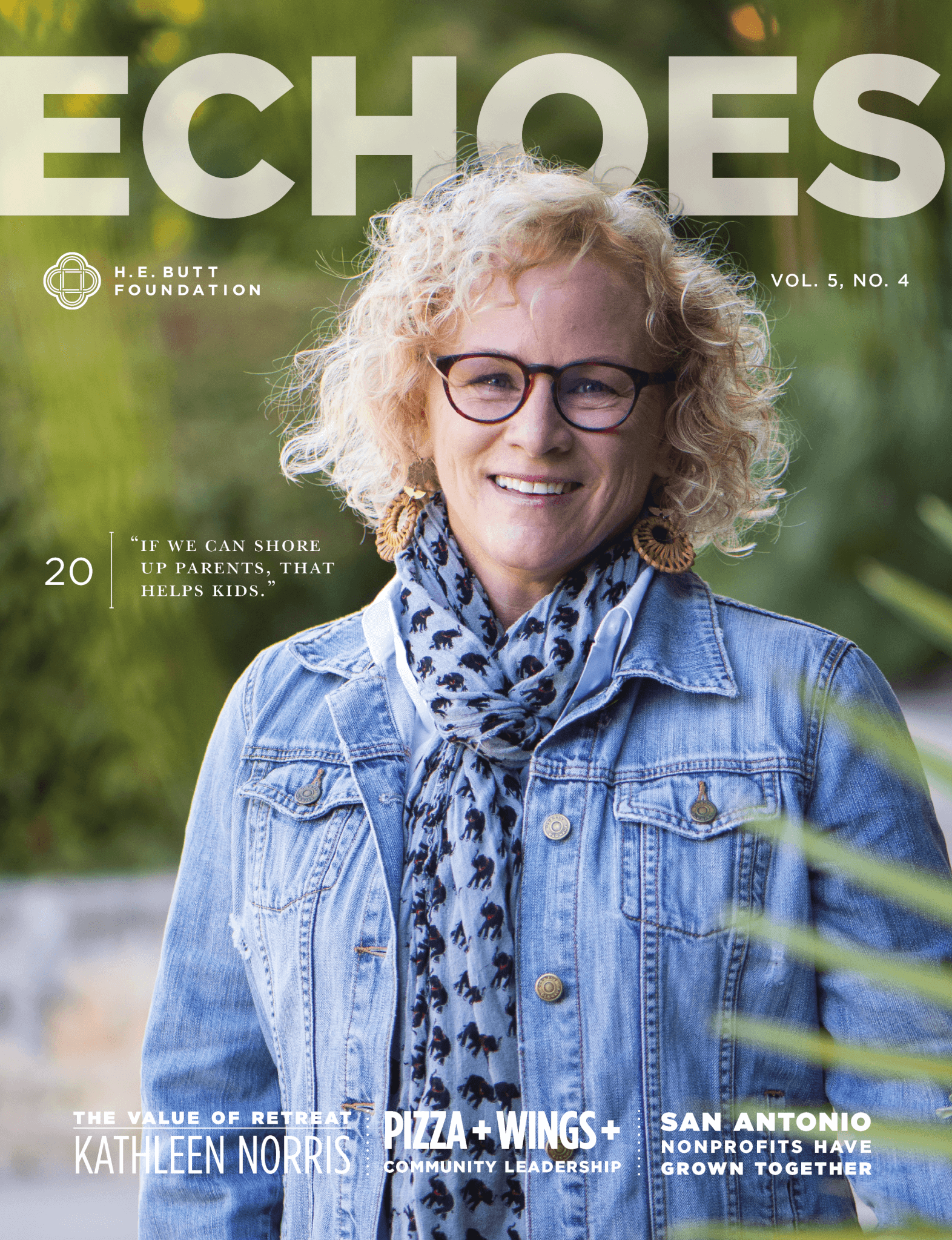
A promising student in SAY Sí’s new media program was “super ridiculously talented,” recalls executive director Jon Hinojosa, but the student was struggling with attendance. The staff at SAY Sí, a nationally-recognized arts program for young people that launched in 1994, couldn’t understand why.
“Probably we’ve been so focused on creative youth … that, although we had the ability to touch base with our kids, we didn’t spend a whole lot of time realizing the difficulties they were having in their home lives,” Hinojosa said.
They dug a little deeper and discovered the student and her family had become homeless and were living out of their car. Hinojosa called the SA Hope Center, whose chief executive officer, Megan Legacy, he had built a relationship with during the H. E. Butt Foundation’s inaugural capacity-building Peer Learning Cohort, which launched in the fall of 2017. The SA Hope Center offers a holistic set of social services designed to empower the individual or family out of poverty.
“Because I had a relationship with somebody who does this work, it was easier to be able to call them,” Hinojosa said. “And then they took it and they helped and supported. It’s about food insecurity. It’s about poverty. It’s about homelessness. There’s so many different layers, you know? And we don’t even want to talk about our current situation.
“Had it not been for that relationship and knowing (the SA Hope Center’s) work … I don’t know if we would have gotten that student a quick response. More importantly, not only that student, but her family.”
The Peer Learning Cohort program has brought together 17 nonprofits in three yearly cohorts, and is now launching a fourth group.
The program is designed to build each organization’s effectiveness from its internal structure to the relationships leaders develop from the three-year process. It began as a desire by the H. E. Butt Foundation leadership to serve San Antonians after they returned home from the camps and other outdoor programming held at the Frio River Canyon.
During a cohort’s first year, members meet five times to work on forming their respective capacity plans. They identify 3-4 goals that will increase their capacity and begin implementing the plans in the second and third year, while promising to do six-month check-ins with the foundation.
Simón Salas, chief executive officer of Good Samaritan Community Services, aka Good Sam, extolls the fruits of this process and the relationships it builds.
He said nonprofits are sometimes reluctant to collaborate because partnerships require trust that’s built over time.
“From the cohort … I’ve got some friends and allies and colleagues,” Salas said.
One example is a partnership between Good Sam, SA Hope Center and Restore Education, a member of the program’s third cohort, which collectively received a grant from The Genevieve and Ward Orsinger Foundation toward a family strengthening initiative using the programs already in place.
Families who enroll in the program gain the benefits of Good Sam’s early childhood care, SA Hope Center’s case management and financial literacy training, and Restore Education’s GED attainment and workforce training programs. Families are able to take advantage of all of these services under one roof.
“They didn’t have to worry about finding a sitter,” Salas said. “They’re enrolled in academic programs on site, and your child is around the hall, so there’s no going across down to drop off the kids and then coming back here.”
When the pandemic hit, the cohort experience provided its members the training to strategically pivot to meet the most immediate needs of their clients, Salas, Hinojosa, and Legacy said.
Echoing this sentiment is Sandra A. Morales, executive director of the House of Neighborly Service on the West Side, another member of the third cohort. Morales remembers attending her cohort’s first meeting in 2019 with Joshua Mireles, the group’s director of programs, not knowing much about capacity building.
“They also urged us to plan ahead and to think strategically, which helped tremendously when planning and pivoting for COVID-19,” Morales said in an email. “The Foundation has provided the nonprofits in their cohorts the necessary tools to help sustain their organizations.”
H. E. Butt Foundation cohort aims to help San Antonio churches and church leaders break mental health stigmas.
Hilary Monford has been partnering with Laity Lodge Family Camp to offer accessible counseling and therapy to families during a particularly difficult year.
